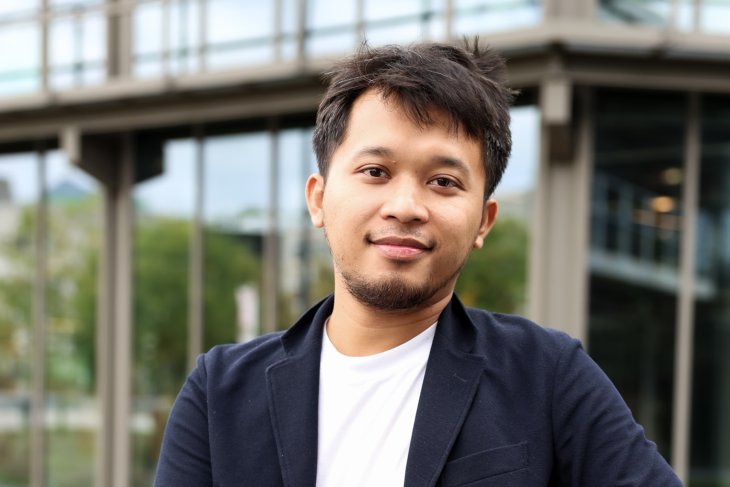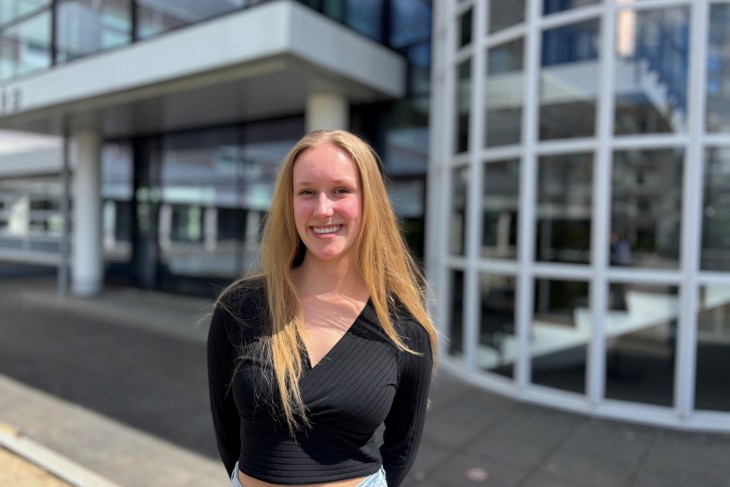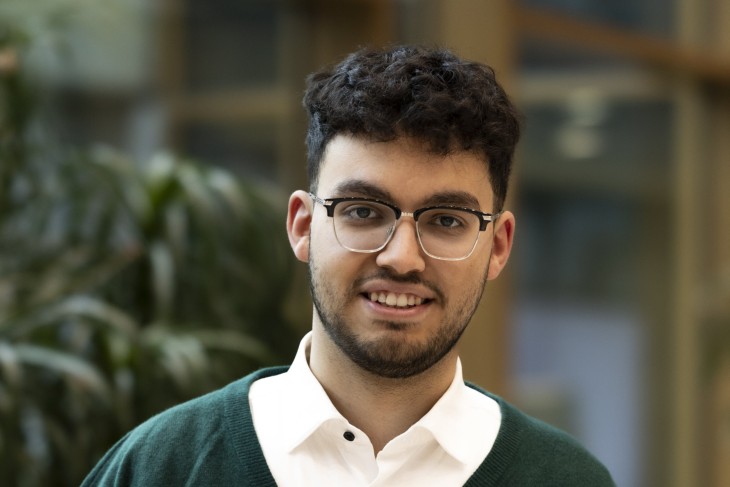“After completing my Bachelor's degree in Cartography in Indonesia, I started working as a data analyst at One Map Policy, an initiative by the Ministry of Economic Affairs of Indonesia to unify all data related to the country, such as strategic locations and road development, into a single digital map. Indonesia is an archipelago made up of over 17,000 islands, making it incredibly difficult to manage all this information in one place. It was like assembling a giant puzzle, and I quickly realised I needed additional knowledge and skills to solve such a complex problem.
So, I decided to pursue a Master’s degree to deepen my understanding of spatial data. I looked at universities in different countries and eventually chose the Master’s in Spatial Engineering at the ITC Faculty of the University of Twente. Simply put, Spatial Engineering teaches you to solve big, real-world problems by using maps, data, and technology to understand and improve space. I’m learning to start with a problem definition: is it a technical, social, or spatial data issue? Then, I look at what role spatial information can play in addressing the problem and focus on how to implement the designed solution.
Big problems, small solutions
A great example of how the master’s teaches me to untangle a big problem is a project where I addressed water scarcity in Razavi Khorasan, a desert area in Iran with a large population that depends on limited water resources. My team and I concentrated on a specific issue: tackling water scarcity by using an ancient system called a qanat, which is essentially an artificial underground river. Instead of proposing expensive new infrastructure, we explored how to optimise the existing Qanat system to better distribute water to the local population.
Accessing spatial data from Iran was a challenge, so we reached out to contacts in Iran and even collaborated with someone from the region. We used satellite imagery and geographic information systems to locate and map out the existing qanats, so we could identify which qanats were still functioning, where they were connected, and how water flowed between them. In the end, we were able to model a more efficient distribution network that could potentially supply water more effectively.
Although our solution was theoretical, the project gave me invaluable insights into problem-solving, data analysis, and the importance of using spatial data to tackle real-world challenges.
Broad applications
Once you learn to structure and redefine big problems, you can apply that knowledge to any social issue. For example, in my thesis, I'm researching how access to urban green and blue spaces — such as parks and water areas — impacts migrant children here in Enschede. Parks can serve as familiar environments that help them connect with others from their home countries, fostering a sense of belonging. Since my focus is on spatial engineering, I'm analysing the locations of housing and green spaces to identify gaps. I'm working with municipality officials, and I feel my work has a real impact.
Start-up
Next to my Master’s, I'm running a startup in Indonesia, Geosquare.ai: we make maps, breaking down the country into squares to make it easier for people to understand and use the data for better decision-making. For example, we can show how many people live in a 100-by-100-metre area and assess whether it's safe to build based on flood risk.
The company is growing fast: we’re getting projects from major banks and government agencies in Indonesia. My role is on the data side, where I develop models for earthquakes, floods, and even demographic data across Indonesia. What I’ve learned in this master’s will undoubtedly help me make a big impact in the future.”




